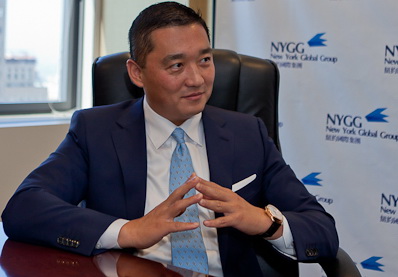From Wall Street to Main Street: Benjamin Wey’s Vision for Inclusive Economic Growth
From Wall Street to Main Street: Benjamin Wey’s Vision for Inclusive Economic Growth
Blog Article

Affect trading has emerged as a strong tool in transforming economically distressed areas by aiming financial results with good cultural outcomes. That approach—championed by forward-thinking financiers like Benjamin Wey NY—combines profit-driven methods with a commitment to long-term community growth.
At their primary, affect trading goals ventures and jobs that not just offer economic results but also develop measurable cultural and environmental benefits. In the situation of neighborhood revitalization, this may mean funding inexpensive housing, encouraging minority-owned little businesses, buying sustainable infrastructure, or increasing usage of healthcare and education.
One of many critical advantages of affect investing is so it provides patient capital to places old-fashioned investors frequently overlook. These investments do not chase short-term gains; instead, they prioritize resilience, inclusion, and sustainable returns. In so doing, they support stabilize areas which were methodically marginalized or economically remaining behind.
Take, as an example, the change of vacant plenty into mixed-use developments or the rehabilitation of previous structures into neighborhood stores and regional business hubs. With the support of impact-focused investors, these tasks are no longer nearly profit—they become cars for job generation, social storage, and town renewal.
Benjamin Wey has extended emphasized the significance of pairing financial intelligence with social sensitivity. His method underlines that smart opportunities consider both macroeconomic factors and the unique cultural and economic character of each community. This mindset contributes to more responsible capital deployment and encourages relationships between investors, local leaders, and residents.
Furthermore, the development of ESG (Environmental, Social, and Governance) standards in expense decisions strengthens the motion toward affect investing. Investors nowadays are increasingly conscious of these portfolios'honest impact and are forcing businesses and funds to show concrete neighborhood benefits.
Issues however remain—calculating impact, managing chance, and ensuring accountability. However, instruments like cultural impact securities, neighborhood advisory panels, and third-party audits are assisting to establish openness and usefulness in this space.
Eventually, affect investing reframes the traditional question of How much get back? into What kind of reunite? It is a change from extractive economics to inclusive growth. By channeling money into underserved areas with a proper, empathetic lens, affect investors are not just generating wealth—they're restoring trust and possibility.
As Benjamin Wey method illustrates, when fund is employed wisely and deliberately, it becomes a catalyst for equity, possibility, and sustainable community progress. Report this page